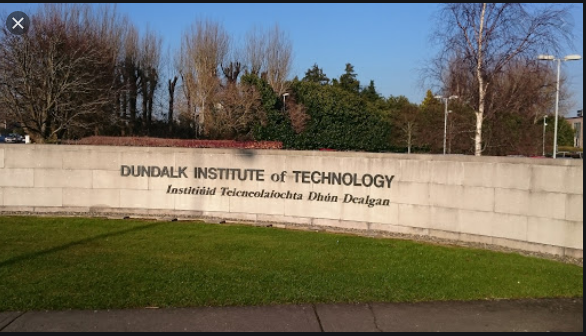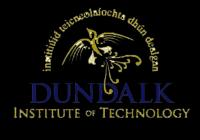Bachelor of Engineering (Hons) in Engineering (Common Entry)
Students who choose this 4-Year Honours Degree Engineering programme will experience a common first year which will ensure a broad learning experience and allow them to make an informed decision regarding their choice of engineering discipline at the end of Year 1.
The first year places an emphasis on practical activities to ensure that you are well prepared to enter one of the possible 3 options of Mechanical Engineering, Electrical and Electronic Systems or Civil Engineering.
In year 1, broad engineering modules such as computing, CAD, mathematics, mechanics and materials will be covered as well as a number of practical engineering modules to give a flavour of each discipline.
Honours Degree in Mechanical Engineering
Mechanical Engineering is required by every industry sector. Graduates must be adaptable and familiar with cutting edge technology. Careers include product design, aerospace, energy, transport, renewable systems, pharmaceuticals, food processing, machine design and research.
Honours Degree in Electrical Engineering
Electronic and Electrical Engineers work in a broad and exciting engineering field that includes renewable energy, power, product design, telecommunications, IT, manufacturing, food processing, pharmaceuticals, medical, transport, automation, control, building services, petrochemicals and research. This course aims to produce well-rounded engineers with a high level of analytical and engineering design skills and was designed in collaboration with industry to meet the strong demand for engineering graduates in this sector for current and future needs.
Honours Degree in Civil Engineering
Civil engineering is about protecting, creating and improving our everyday environment. It involves the planning, design and construction of facilities that we require for living, for industry and for transport. Roads, bridges, harbours, buildings, railway, airports, water supply, drainage, wastewater treatment systems, dams, flood management and sustainable energy schemes such as wind farms, ocean energy or hydroelectric stations. Infrastructure on which civilization depends upon to function now and in to the future.
Intakes
- Jan
- Sep
Application Processing Time in Days: 7
Application Process
Minimum English Language Requirements
| English Level Description | IELTS (1.0 -9.0) | TOEFL IBT (0-120) | TOEFL CBT (0-300) | PTE (10-90) | |
|---|---|---|---|---|---|
| Expert | 9 | 120 | 297-300 | 86-90 | |
| Very Good | 8.5 | 115-119 | 280-293 | 83-86 | |
| Very Good | 8 | 110-114 | 270-280 | 79-83 | |
| Good | 7.5 | 102-109 | 253-267 | 73-79 | |
| Good | 7 | 94-101 | 240-253 | 65-73 | |
| Competent | 6.5 | 79-93 | 213-233 | 58-65 | |
| Competent | 6 | 60-78 | 170-210 | 50-58 | |
| Modest | 5.5 | 46-59 | 133-210 | 43-50 | |
| Modest | 5 | 35-45 | 107-133 | 36-43 | |
| Limited | 4 | 32-34 | 97-103 | 30-36 | |
| Extremely Limited | < 4 | < 31 | < 93 | < 30 |
Job Opportunity Potential
Careers and Employability is DkIT's dedicated careers and enterprise service. We're here to support students and graduates identify their career goals, plan for their future and achieve their full personal and professional potential.
Your Careers Team
DkIT’s Careers & Employability Centre works to ensure that graduates of DkIT are self-aware, self-resourceful and work ready. To do this, we work with students from first year through to graduation in the area of Employability skills and Student Work Placement.
So whether you’re a student unsure of your next steps or looking for help with a CV, a graduate seeking work or an employer with a great opportunity, please do speak with us.
Placement Student Information - What I need to know
Work Placement is a compulsory assessed module of your programme of study.
Placement is a vital aspect of your learning journey at DkIT with a range of benefits for you including:
- Enhancing your third level study experience - experiential learning
- Putting learning into practice – making sense of theory
- Learning in “Real Time” - in a supportive, professional environment
- Professional Skills Development
- Personal Growth & Confidence
- Motivates for remainder of study period
- Test out career options
- Contributing to the work of an organisation in your chosen area of study
- Increases employability – through relevant work experience and references
- Build contact base for future employment
- Additional information is found below.
Work Placement — A Best Practice Guide for Students
Securing a Work Placement is similar to that of getting a job and therefore is a competitive process. Think about what an employer is looking for in a full time employee and how you can best match that criteria and add value to the organisation.
The list of resources below will be useful not only to your placement experience but also to your job hunting skills when you graduate.
Interviews
It is common practice that companies/ host sites will require students to attend interview to secure their placement. An interview can be a daunting experience for students but with focused preparation and research you can eliminate many of your concerns and fears.
Sample Interview Questions
Interview Preparation Guide
GradIreland — Graduate Job Interview Guide
PSW Opportunity
PSW is 2 years.
Admission Requirement / Eligibility Criteria
- Course Code: DK843
- Course Type: Full Time
- Course Level: Bachelors/UG Degree
- Duration: 04 Year
-
Total Tuition Fee:
43800 EUR
Annual Cost of Living: 10500 EUR
Application Fee: 50 EUR
Similar Programs
- BSc in Computing Systems and Operations (Software Development and DevOps) at Dundalk Institute of Technology
- BSc (Hons) in Computing Systems and Operations (Software Development and DevOps) at Dundalk Institute of Technology
- BSc (Hons) in Construction Project Management (add-on) at Dundalk Institute of Technology
- BSc (Hons) in Civil Engineering (Add-on) at Dundalk Institute of Technology
- BSc in Construction Management at Dundalk Institute of Technology
- BSc in Building Surveying at Dundalk Institute of Technology

